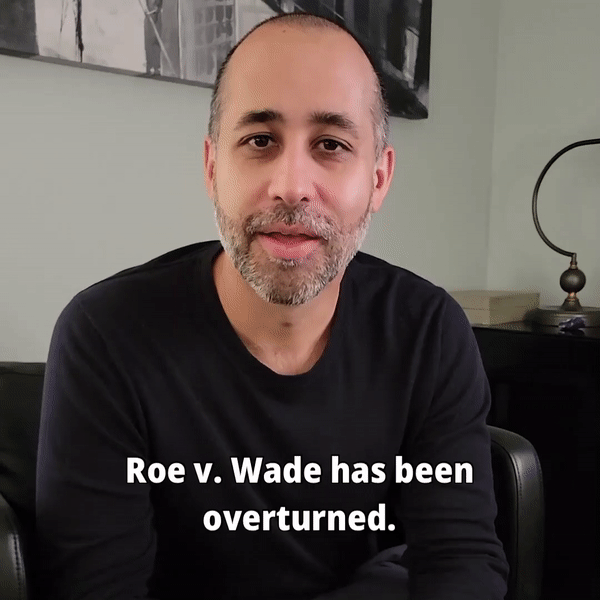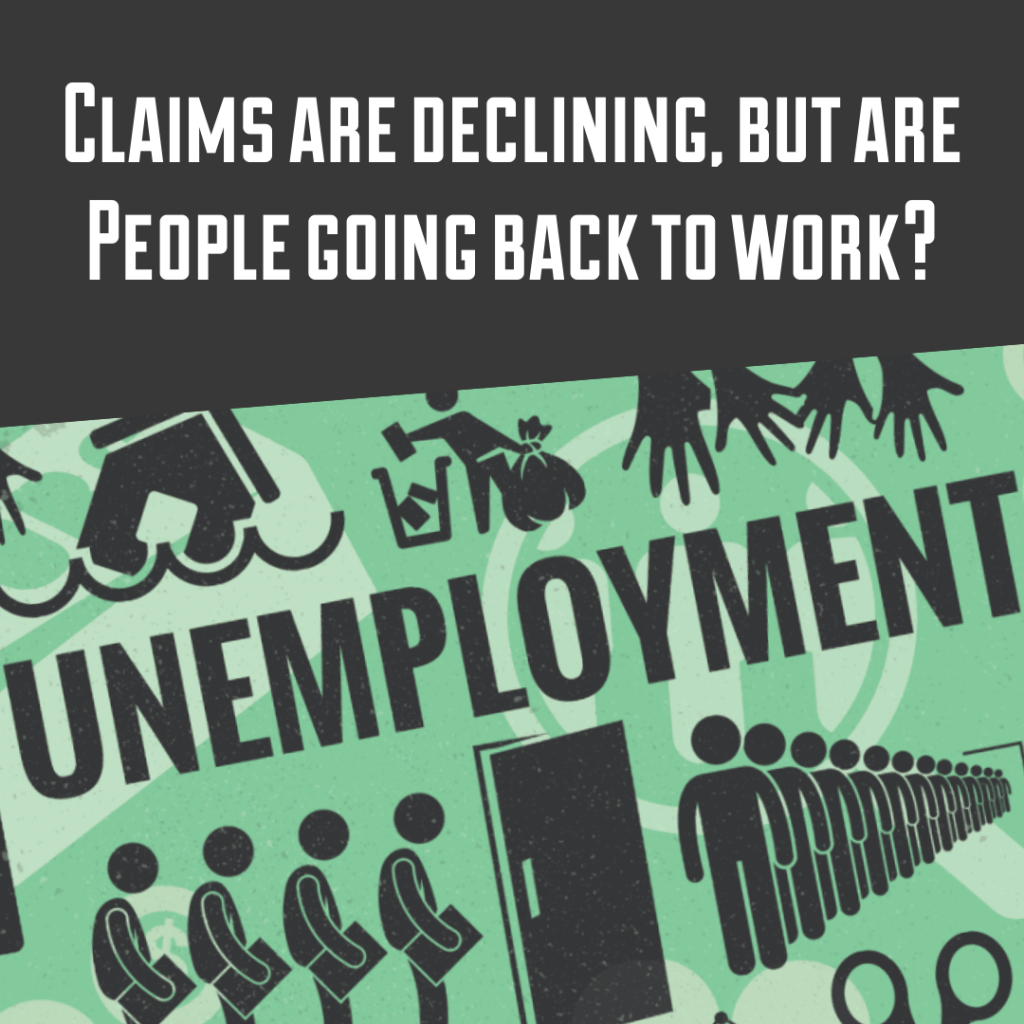Last Saturday, I was scrolling through Facebook past the usual Bernie/Hillary/Trump/Oscars/kitten-video back-and-forth, when I saw that one of my FB friends had “liked” an article entitled, “Woman Fired by Yelp After Making Viral Post About Low Wages.” What caught my eye was the name of the woman in question at the start of the article – Talia Jane. I had met Talia several times at my band’s shows in Los Angeles, and we are friends on Facebook. Basically, somebody I knew was going viral – fascinating, obviously. But I had no idea just how viral it would go.
In the past several days, Talia’s post, her subsequent firing, and the ensuing digital brohauhau about the fight for livable wages, so-called millennial entitlement, and everything in between has reached a fever pitch, and the whole episode seems to be graduating from viral flash-in-the-pan oddity to a full-on cultural moment. The BBC and Forbes picked up on the story, and by Tuesday, an in-depth piece on the affair was the second-most read article on the Washington Post website. And that’s not to mention the Buzzfeeds, Gawkers, Business Insiders, and other Internet-only publications of the world, all of which seemed to have pounced on the story immediately and fueled the fires over days, leading to the old guard media picking up on the irresistible viral millennial v. billionaire executive face-off.
At this point, the management at Yelp might collectively be wondering what the heck just happened over the past week. Or perhaps not, as their business model of letting everyone and anyone insert their opinions, no matter how well-reasoned or not, into the public discourse is what has turned the 12-year old company into a multi-billion dollar enterprise, and a business’s Yelp reviews can be the measuring stick by which it lives or dies. In short, it’s probably not too much of a stretch to say that Yelp’s former worker (perhaps instinctively) used Yelp-style communication techniques to shame the company and, in turn, relieve herself of a job.
Talia v. Yelp Part I: The “Open Letter”
For those unfamiliar with the exact story of what went down to create this viral moment, let’s take a step back to last week at this time. Last Thursday, Talia Jane was, like a lot of liberal arts majors a few years out of college, working at a job not quite commensurate with her education or cost of living. In her case, she worked in customer service for Yelp Eat24, an online food-ordering service owned by Yelp and incorporating the Yelp platform.
By the next day, everything changed.
Talia posted a piece entitled “An Open Letter to My CEO” (her CEO in particular being Jeremy Stoppelman, CEO of Yelp) on a site called Medium.com which, for the uninitiated, describes itself as follows:
“Medium is a different kind of place to read and write on the internet. A place where the measure of success isn’t views, but viewpoints. Where the quality of the idea matters, not the author’s qualifications. A place where conversation pushes ideas forward and words still matter.”
In other words, a site where just about anyone can post just about anything (sound familiar?) and the world may or may not take notice. What Talia posted was a scathing indictment of the company and the position she’d found herself in. She talked of wanting to work in media and be in San Francisco, but upset to find herself working in customer service (“I was told I’d have to work in support for an entire year before I would be able to move to a different department”) and unable to afford groceries on her income as 80% of it went to her $1245 rent bill. She went on to decry Yelp’s training programs in relatively explicit detail, expressed disapproval of the fact that several ideas for charitable outreach she had proposed to the company had gone nowhere, and suggested that the elimination of employee perks like free pistachios might free up money to let her buy groceries. And, unsurprisingly, there were references to Koppelman’s net worth, which she put at between $111 and $222 million, and the $300 million Yelp had spent to buy Eat24.
Not shockingly, Talia updated her post later on Friday (the same day the open letter was published) to say she had officially been let go by the company, and offering her Venmo, Paypal, and Square IDs in case anyone was feeling moved by her plight to instantly donate to her.
Talia v. Yelp Part II: The Pitchforks Come Out
Of course, what was a disagreement between employer and employee happened before the eyes of…well, it’s hard to say how many initially read the Medium post, but by the next morning (seventeen hours and four minutes after the alleged firing) that most viral of viral news outlets, Buzzfeed, had posted an article, entitled, “This Woman’s Post on Poverty Went Viral and She Lost Her Job“ with the sub-headline, “Talia Jane was fired two hours after she publicly admitted she couldn’t afford groceries.”
Reading those headlines, you might be inclined to scroll up on this post to make sure you read the description of the “open letter” right, or maybe even clicked through to read the original document in its entirety. Regardless of what one thinks about the merits of the issues in the letter, it’s arguable that the open letter was less a post on the social issue of poverty or a public admission (which implies some kind of pressure to speak) but rather a very public airing of grievances against a specific employer as it related to the employee’s own budgetary situation, and which included numerous references to internal company procedures. But, much like a restaurant helplessly watching embittered Yelp users ranting over allegedly inferior dim sum, inattentive hostesses, and watered-down cocktails, all Yelp and Stoppelman could do was watch (well watch and write tweets urging the “twitter army” to “put down the pitchforks“) as the headlines piled up like so many one-star reviews:
- Gawker: “Employee Who Complained About Not Earning Enough Money to Buy Food is Swiftly, Savagely Fired From Yelp“
- Business Insider: “A Yelp Employee Publicly Complained to the CEO That She Couldn’t Afford to Buy Groceries – Hours Later She Was Fired”
- Forbes: “Was Yelp Being Fair When It Fired Talia Jane?”
- Quartz: “‘I Can’t Afford to Buy Groceries’: Yelp Fired an Employee After Her Scathing Letter to the CEO”
And those are just a handful of the headlines that came out by Sunday morning, before the workweek had begun (and not including, naturally, open letter responses to Ms. Jane’s open letter).
Mainstream news outlets followed – although, notably, many of them were not kind to Ms. Jane’s stance, with Michelle Malkin’s post at National Review entitled “Talia Jane: Entitled Millenial and Fraud” being blunter than most in its damnation, while reflecting the general pushback (“My husband and I immediately read this fraud’s screed to our 15- and 12-year-old children as an object lesson in how not to be a grown-up.”).
But while the open letter provided plenty of fuel for the author’s detractors, the headlines alone have cast a shadow over Yelp’s public image. And although it’s easy to take issue with the communication mode, the grievances over the divide between executive and worker pay and the problem of livable wages reflect hot political issues for which no company wants to be the poster child. Which all leads us to the question:
What’s a Publicly-Shamed Company to Do With the Shamer-Employee?
In 2015, British journalist Jon Ronson explored the concept of public shaming in the digital age with the book “So You’ve Been Publicly Shamed.” While public shaming was common prior to the 20th century as a state-enforced punishment, it was phased out, only to roar back with a ferocity in the 21st century social media age. While the book chronicles individuals such as Justine Sacco, a private individual who tweeted a racially insensitive joke about AIDS mid-flight only to land and find herself the object of ridicule around the world, the public shaming process affects companies as well.
When a company has been shamed by its own employee, it only seems natural to fire the employee, but of course this can just result in more shame heaped on the company (“Yelp Fires Employee Who Complains About Low Wages” sounds a lot worse than “Yelp Employee Complains About Low Wages” – after all, happy hours all over the country are filled with employees complaining about low wages).
That said, no one seems to be suggesting that Yelp acted outside of the law in terminating Ms. Jane. The law certainly provides certain protections to employees and/or whistleblowers from retaliation over raising certain issues such as those related to sexual harassment, regulatory violations, and discriminatory actions. But for an at-will employee, the company has just as much right to terminate the employee’s employment for any legal reason (which would include badmouthing the company) as the employee has the right to get on the internet and post about what an unsatisfactory employment situation she is in, assuming she betrays no legally protected business secrets or otherwise violates an employment contract. (And, if you’re curious, there would likely not be firm grounds for a defamation action against Ms. Jane given the basic underlying facts alleged in the letter seem to be relatively uncontested at this point, and California recognizes an “Opinion and Fair Comment Privilege” which would likely act as a defense for many of the comments — not to mention the optics of bringing a defamation suit against a 25-year old former customer service rep are less than stellar).
In the end, Yelp and similar businesses facing public scorn from employees might do well to simply learn to adjust to this new world in which the social media review platforms like the one Yelp helped create have given a digital soapbox to everyone with an opinion and a keyboard. Like the businesses whose fates are decided by online customer reviews, companies can do their best to foster employee morale while listening to complaints and criticism and attempting to respond to employee-raised issues internally before they become dirty laundry for the whole world to see.
Or perhaps they can simply fight fire with fire by following the lead of yet another millennial writer and write an open letter to millennials who are writing open letters to publicly shame them for writing open letters.










![Ultimate Legal Breakdown: Negative Online Reviews [e288]](https://www.pashalaw.com/wp-content/uploads/2017/06/Ultimate-Legal-Breakdown-Online-Reviews-1-1024x543.jpg)






![Law in the Digital Age: Exploring the Legal Intricacies of Artificial Intelligence [e323]](https://www.pashalaw.com/wp-content/uploads/2023/11/WhatsApp-Image-2023-11-21-at-13.24.49_4a326c9e-300x212.jpg)
![Unraveling the Workforce: Navigating the Aftermath of Mass Layoffs [e322]](https://www.pashalaw.com/wp-content/uploads/2023/07/Untitled-design-23-300x212.png)
![Return to the Office vs. Remote: What Can Employers Legally Enforce? [e321]](https://www.pashalaw.com/wp-content/uploads/2023/01/Pasha_LSSB_321_banner-300x212.jpg)
![Explaining the Hans Niemann Chess Lawsuit v. Magnus Carlsen [e320]](https://www.pashalaw.com/wp-content/uploads/2022/10/LAWYER-EXPLAINS-7-300x169.png)
![California v. Texas: Which is Better for Business? [313]](https://www.pashalaw.com/wp-content/uploads/2021/07/Pasha_LSSB_CaliforniaVSTexas-300x212.jpg)
![Buyers vs. Sellers: Negotiating Mergers & Acquisitions [e319]](https://www.pashalaw.com/wp-content/uploads/2022/06/Pasha_LSSB_BuyersVsSellers_banner-300x212.jpg)
![Employers vs. Employees: When Are Employment Restrictions Fair? [e318]](https://www.pashalaw.com/wp-content/uploads/2022/05/Pasha_LSSB_EmployeesVsEmployers_banner-1-300x212.jpg)
![Vaccine Mandates Supreme Court Rulings [E317]](https://www.pashalaw.com/wp-content/uploads/2022/02/WhatsApp-Image-2022-02-11-at-4.10.32-PM-300x212.jpeg)
![Business of Healthcare [e316]](https://www.pashalaw.com/wp-content/uploads/2021/11/Pasha_LSSB_BusinessofHealthcare_banner-300x212.jpg)
![Social Media and the Law [e315]](https://www.pashalaw.com/wp-content/uploads/2021/10/WhatsApp-Image-2021-10-06-at-1.43.08-PM-300x212.jpeg)
![Defining NDA Boundaries: When does it go too far? [e314]](https://www.pashalaw.com/wp-content/uploads/2021/09/Pasha_LSSB_NDA_WordPress-2-300x212.jpg)
![More Than a Mistake: Business Blunders to Avoid [312] Top Five Business Blunders](https://www.pashalaw.com/wp-content/uploads/2021/06/Pasha_LSSB_Blunders_WP-1-300x212.jpg)
![Is There a Right Way to Fire an Employee? We Ask the Experts [311]](https://www.pashalaw.com/wp-content/uploads/2021/02/Pasha_LSSB_FireAnEmployee_Website-300x200.jpg)
![The New Frontier: Navigating Business Law During a Pandemic [310]](https://www.pashalaw.com/wp-content/uploads/2020/12/Pasha_LSSB_Epidsode308_Covid_Web-1-300x200.jpg)
![Wrap Up | Behind the Buy [8/8] [309]](https://www.pashalaw.com/wp-content/uploads/2020/11/Pasha_BehindTheBuy_Episode8-300x200.jpg)
![Is it all over? | Behind the Buy [7/8] [308]](https://www.pashalaw.com/wp-content/uploads/2020/09/iStock-1153248856-overlay-scaled-300x200.jpg)
![Fight for Your [Trademark] Rights | Behind the Buy [6/8] [307]](https://www.pashalaw.com/wp-content/uploads/2020/07/Fight-for-your-trademark-right-300x200.jpg)
![They Let It Slip | Behind the Buy [5/8] [306]](https://www.pashalaw.com/wp-content/uploads/2020/06/Behind-the-buy-they-let-it-slip-300x200.jpg)
![Mo’ Investigation Mo’ Problems | Behind the Buy [4/8] [305]](https://www.pashalaw.com/wp-content/uploads/2020/05/interrobang-1-scaled-300x200.jpg)
![Broker or Joker | Behind the Buy [3/8] [304] Behind the buy - Broker or Joker](https://www.pashalaw.com/wp-content/uploads/2020/04/Joker-or-Broker-1-300x185.jpg)
![Intentions Are Nothing Without a Signature | Behind the Buy [2/8] [303]](https://www.pashalaw.com/wp-content/uploads/2020/04/intentions-are-nothing-without-a-signature-300x185.jpg)
![From First Steps to Final Signatures | Behind the Buy [1/8] [302]](https://www.pashalaw.com/wp-content/uploads/2020/04/first-steps-to-final-signatures-300x185.jpg)
![The Dark-side of GrubHub’s (and others’) Relationship with Restaurants [e301]](https://www.pashalaw.com/wp-content/uploads/2015/04/When-Competition-Goes-Too-Far-Ice-Cream-Truck-Edition-300x201.jpg)
![Ultimate Legal Breakdown of Internet Law & the Subscription Business Model [e300]](https://www.pashalaw.com/wp-content/uploads/2019/05/Ultimate-Legal-Breakdown-of-Internet-Law-the-Subscription-Business-Model-300x196.jpg)
![Why the Business Buying Process is Like a Wedding?: A Legal Guide [e299]](https://www.pashalaw.com/wp-content/uploads/2019/03/futura-300x169.jpg)
![Will Crowdfunding and General Solicitation Change How Companies Raise Capital? [e298]](https://www.pashalaw.com/wp-content/uploads/2018/11/Will-Crowdfunding-and-General-Solicitation-Change-How-Companies-Raise-Capital-300x159.jpg)
![Pirates, Pilots, and Passwords: Flight Sim Labs Navigates Legal Issues (w/ Marc Hoag as Guest) [e297]](https://www.pashalaw.com/wp-content/uploads/2018/07/flight-sim-labs-300x159.jpg)
![Facebook, Zuckerberg, and the Data Privacy Dilemma [e296] User data, data breach photo by Pete Souza)](https://www.pashalaw.com/wp-content/uploads/2018/04/data-300x159.jpg)
![What To Do When Your Business Is Raided By ICE [e295] I.C.E Raids business](https://www.pashalaw.com/wp-content/uploads/2018/02/ice-cover-300x159.jpg)
![General Contractors & Subcontractors in California – What you need to know [e294]](https://www.pashalaw.com/wp-content/uploads/2018/01/iStock-666960952-300x200.jpg)
![Mattress Giants v. Sleepoplis: The War On Getting You To Bed [e293]](https://www.pashalaw.com/wp-content/uploads/2017/12/sleepopolis-300x159.jpg)
![The Harassment Watershed [e292]](https://www.pashalaw.com/wp-content/uploads/2017/12/me-2-300x219.jpg)
![Investing and Immigrating to the United States: The EB-5 Green Card [e291]](https://www.pashalaw.com/wp-content/uploads/2012/12/eb-5-investment-visa-program-300x159.jpg)
![Responding to a Government Requests (Inquiries, Warrants, etc.) [e290] How to respond to government requests, inquiries, warrants and investigation](https://www.pashalaw.com/wp-content/uploads/2017/10/iStock_57303576_LARGE-300x200.jpg)
![Ultimate Legal Breakdown: Employee Dress Codes [e289]](https://www.pashalaw.com/wp-content/uploads/2017/08/Ultimate-Legal-Breakdown-Template-1-300x159.jpg)
![Ultimate Legal Breakdown: Negative Online Reviews [e288]](https://www.pashalaw.com/wp-content/uploads/2017/06/Ultimate-Legal-Breakdown-Online-Reviews-1-300x159.jpg)
![Ultimate Legal Breakdown: Social Media Marketing [e287]](https://www.pashalaw.com/wp-content/uploads/2017/06/ultimate-legal-breakdown-social-media-marketing-blur-300x159.jpg)
![Ultimate Legal Breakdown: Subscription Box Businesses [e286]](https://www.pashalaw.com/wp-content/uploads/2017/03/ultimate-legal-breakdown-subscription-box-services-pasha-law-2-300x159.jpg)
![Can Companies Protect Against Foreseeable Misuse of Apps [e285]](https://www.pashalaw.com/wp-content/uploads/2017/01/iStock-505291242-300x176.jpg)
![When Using Celebrity Deaths for Brand Promotion Crosses the Line [e284]](https://www.pashalaw.com/wp-content/uploads/2017/01/celbrity-300x159.png)
![Are Employers Liable When Employees Are Accused of Racism? [e283] Racist Employee](https://www.pashalaw.com/wp-content/uploads/2016/12/Are-employers-liable-when-an-employees-are-accused-of-racism-300x159.jpg)
![How Businesses Should Handle Unpaid Bills from Clients [e282] What to do when a client won't pay.](https://www.pashalaw.com/wp-content/uploads/2016/12/How-Businesses-Should-Handle-Unpaid-Bills-to-Clients-300x159.png)
![Can Employers Implement English Only Policies Without Discriminating? [e281]](https://www.pashalaw.com/wp-content/uploads/2016/11/Can-Employers-Impliment-English-Only-Policies-Without-Discriminating-300x159.jpg)
![Why You May No Longer See Actors’ Ages on Their IMDB Page [e280]](https://www.pashalaw.com/wp-content/uploads/2016/10/IMDB-AGE2-300x159.jpg)
![Airbnb’s Discrimination Problem and How Businesses Can Relate [e279]](https://www.pashalaw.com/wp-content/uploads/2016/09/airbnb-300x159.jpg)
![What To Do When Your Amazon Account Gets Suspended [e278]](https://www.pashalaw.com/wp-content/uploads/2016/09/What-To-Do-When-Your-Amazon-Account-Gets-Suspended-1-300x200.jpg)
![How Independent Artists Reacted to Fashion Mogul Zara’s Alleged Infringement [e277]](https://www.pashalaw.com/wp-content/uploads/2016/08/How-Independent-Artists-Reacted-to-Fashion-Mogul-Zaras-Alleged-Infringement--300x159.jpg)
![Can Brave’s Ad Replacing Software Defeat Newspapers and Copyright Law? [e276]](https://www.pashalaw.com/wp-content/uploads/2016/08/Can-Braves-Ad-Replacing-Software-Defeat-Newspapers-and-Copyright-Law-300x159.jpg)
![Why The Roger Ailes Sexual Harassment Lawsuit Is Far From Normal [e275]](https://www.pashalaw.com/wp-content/uploads/2016/07/WHY-THE-ROGER-AILES-SEXUAL-HARASSMENT-LAWSUIT-IS-FAR-FROM-NORMAL-300x159.jpeg)
![How Starbucks Turned Coveted Employer to Employee Complaints [e274]](https://www.pashalaw.com/wp-content/uploads/2016/07/iStock_54169990_LARGE-300x210.jpg)
